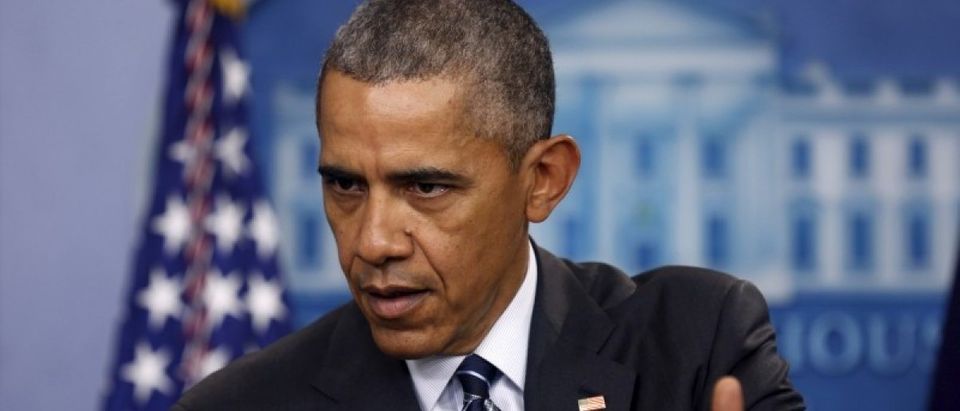Federal agencies have overhauled a multitude of various workplace regulations since President Barack Obama took office. The administration has argued it’s to improve workplace function, but critics have expressed doubt and noted uncertainty is unkind to business.
“Its really hard to speculate because we don’t have the language for a number of the rules,”Amanda Wood, labor policy director for the National Association of Manufacturers. “There are a lot of businesses that can’t plan.”
Without the ability to plan, business owners hire fewer employees and launch fewer investments. They simply cannot predict what the cost of the new regulations will be, so it makes little sense to spend elsewhere. New rules to overtime, union elections and contracting are among the more prominent of the changes.
“Frightening from the small business perspective,” Elizabeth Milito, senior executive counsel for the National Federation of Independent Business, told TheDCNF. “They’re taking the brunt of it.”
The franchise model has been a particular point of interest when it comes to the regulatory changes. The National Labor Relations Board (NLRB) could fundamentally alter contracting and the franchise model by expanding an employment rule known as the joint-employer standard. It now affects businesses that have an indirect impact over each other as opposed to direct impact.
“For employers in our world its the joint-employer rule,” International Franchise Association Senior Vice President of Communications Matt Haller told TheDCNF. “No one really knows what the new standard means by indirect impact.”
The standard allows the federal government to declare multiple businesses as a single employer. Traditionally such a declaration only occurred if one business had direct control over the employees of another. “Direct control” could be over wages or hiring practices and so on. The NLRB has already begun implementing an expanded version of the standard that considers indirect control.
It’s also extended new overtime rules.
“The overtime issue is an immediate hit on the bottom line,” Haller also noted. “It certainly is for small businesses that have less flexibility.”
The Department of Labor (DOL) has been tasked with changing regulations so more workers can qualify for overtime. Critics cite concernThat undue stress on businesses could force them to reduce workers hours or limit salaried position.
The rule change would essentially increase the salary threshold to qualify for overtime. Managers, executives and administrators at the moment cannot receive overtime compensation if they have a salary above $23,660 annually. The rule change increases the threshold to $52,000 annually. The change could make an additional five million workers eligible for overtime.
Another policy change, dubbed the “ambush election” rule by critics, decreases the amount of time union elections are held. The change gives employees little time to understand the impact of joining a union. The NLRB states the rule will help modernize a critical but outdated aspect of organizing.
Business associations and some lawmakers have tried to oppose the changes with bills and legal challenges. Thus far there has been little progress.
All content created by the Daily Caller News Foundation, an independent and nonpartisan newswire service, is available without charge to any legitimate news publisher that can provide a large audience. All republished articles must include our logo, our reporter’s byline and their DCNF affiliation. For any questions about our guidelines or partnering with us, please contact licensing@dailycallernewsfoundation.org.












